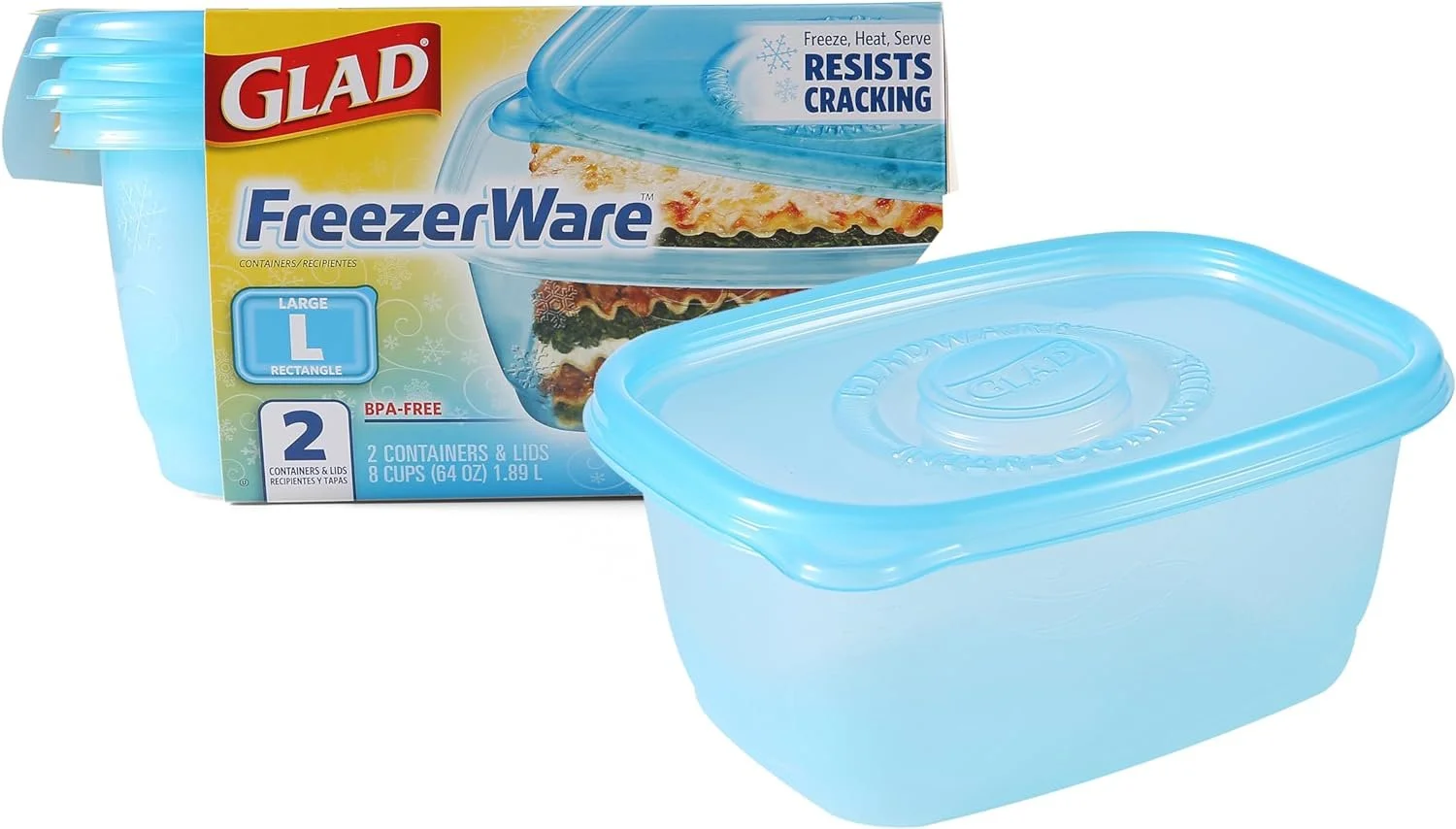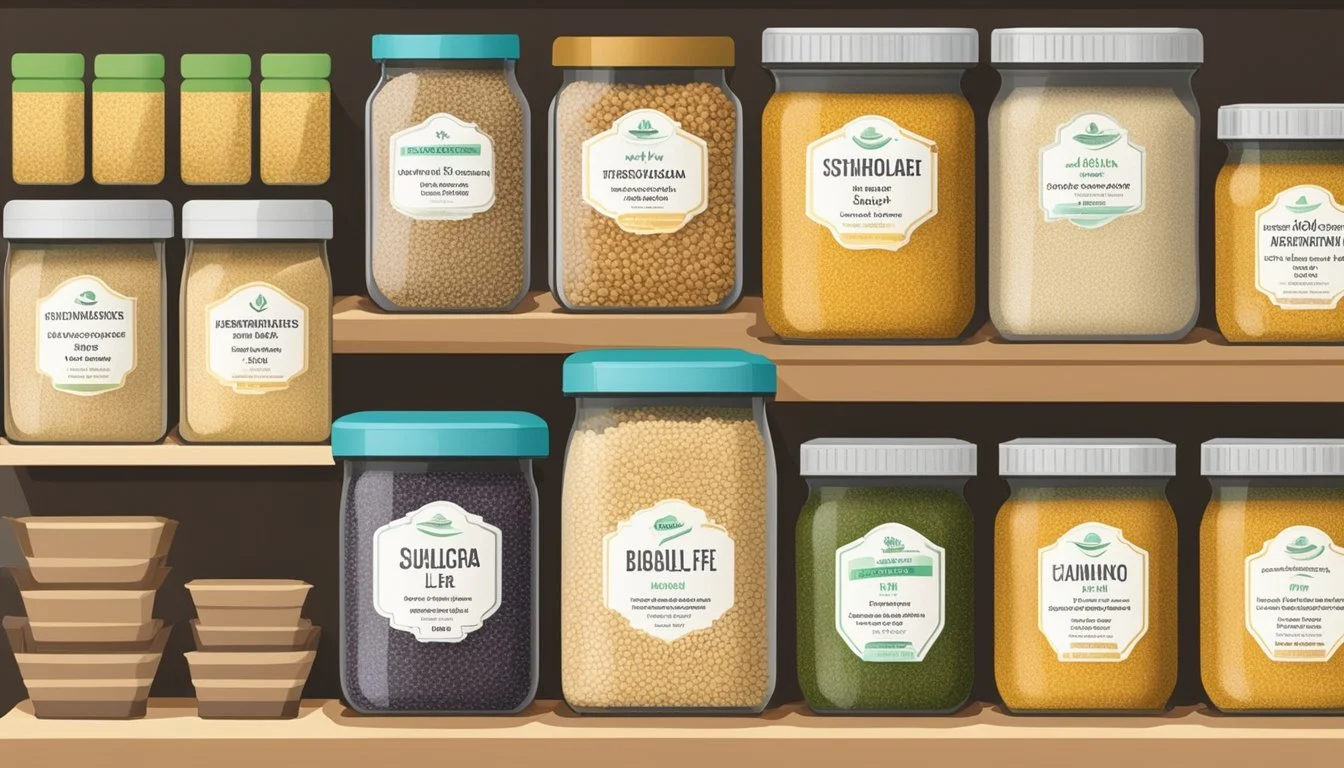How Long Does Bulgur Last?
Shelf Life and Storage Tips
Bulgur is a versatile whole grain that's a staple in many pantries due to its nutritional value and ease of preparation. As a form of wheat that has been cleaned, parboiled, dried, and partially debranned, bulgur requires less cooking time than other whole grains, making it a popular choice for quick and healthy meals. Its shelf life, however, is a common concern for consumers wishing to enjoy its benefits to the fullest.
Uncooked bulgur, when stored properly in a cool, dry place within an airtight container, can remain fresh and suitable for consumption for up to 1-2 years. It is recommended to use bulgur within a year of purchase to ensure optimal quality and flavor. The grain's longevity is attributed to its low moisture content and the parboiling process it undergoes, which inhibits the growth of microorganisms.
Once cooked, bulgur wheat (how long does bulgur wheat last?) should be handled with care to maintain its freshness. It can be kept in an airtight container in the refrigerator for 5-7 days. If frozen, cooked bulgur can last up to 6 months. Recognizing the signs of spoilage, such as changes in texture, color, or an off smell, is key to ensuring that bulgur remains a healthy addition to any diet.
What Is Bulgur?
Bulgur is a nutritious whole grain known for its quick cooking time and versatile uses in various dishes. Its high fiber content and generous amounts of vitamins, minerals, such as iron and magnesium, contribute to its esteemed position in Middle Eastern and Mediterranean diets.
Bulgur Varieties
Bulgur comes in different coarseness levels, ranging from fine to coarse grains. The fine variety cooks quickly and is commonly used in dishes like tabbouleh, while the coarse bulgur takes longer to cook, making it suitable for heartier meals. Regardless of the coarseness, bulgur imparts a nutty flavor to meals, enhancing their nutritional profile with its whole grain benefits.
Storing Bulgur
Proper storage of bulgur is essential to maintain its freshness and extend its shelf life. An ideal storage condition for bulgur includes a cool, dry environment away from moisture and excess oxygen.
Pantry Storage
For uncooked bulgur, the pantry serves as an adequate storage location. When kept in a sealed container or its original package, preferably airtight, bulgur can last approximately up to one year at room temperature. This timeframe ensures the retention of its quality and flavor. Storage in a dark, cool pantry can help in preventing exposure to heat and light, which might degrade the bulgur more rapidly.
Refrigerator & Freezer Storage
Storing uncooked bulgur in the refrigerator or freezer can extend its shelf life further. In an airtight container, bulgur can efficiently last from 1 to 2 years when refrigerated or frozen. In the case of cooked bulgur, to maintain its freshness and extend its shelf life, it should be stored in an airtight container or a resealable bag before placing it in the freezer where it can last for up to six months. It is crucial to ensure the bulgur is cool before sealing it to avoid condensation that can introduce moisture and lead to spoilage.
Shelf Life of Bulgur
The longevity of bulgur is influenced by its state—uncooked or cooked—and the conditions in which it is stored. Accurate labeling of packages can assist in tracking shelf life.
Uncooked Bulgur Shelf Life
Uncooked bulgur, when stored under the right conditions, demonstrates a notable shelf life. In an airtight container and placed in a pantry, it can last up to 1 year. If the uncooked bulgur is kept in the freezer, its longevity can extend to 2 years. Key factors such as the absence of moisture and oxygen are essential in preserving the grain's quality over time.
Cooked Bulgur Shelf Life
Once cooked, bulgur's shelf life diminishes considerably. It is recommended to consume cooked bulgur within 3-5 days when stored in the refrigerator. For optimal freshness and safety, storage in airtight containers is crucial. Beyond this timeframe, cooked bulgur's quality and safety may be compromised.
Maintaining the shelf life of both uncooked and cooked bulgur requires attention to storage practices, with proper labeling acting as a helpful tool to ensure consumption within a safe and appropriate timespan.
Signs of Spoilage
When assessing bulgur for spoilage, one should look for changes in texture and flavor, visual and olfactory indicators, and take preventive measures to extend its shelf life.
Changes in Texture and Flavor
Bulgur should maintain a firm yet slightly chewy texture when cooked. It typically has a mild, nutty flavor. Spoilage may be evident if the grains become excessively hard, mushy, or if there's a noticeable shift toward a sour or rancid taste, indicating that the bulgur is no longer suitable for consumption.
Visual and Olfactory Indicators
Visual signs of bulgur spoilage include mold growth and discoloration. Mold may appear as white, green, or black spots. Discoloration, which is any significant departure from the grain's natural golden-brown hue, can signal spoilage. An off odor or unusual smell is a clear indicator that bulgur has gone bad.
Preventing Spoilage
Maintain bulgur's shelf life by storing it in a cool, dry, and dark place. To minimize the risk of spoilage, store bulgur in an airtight container to protect it from moisture and pests. If stored properly, bulgur can last for several months. However, cracked or crushed bulgur may spoil faster than whole grain bulgur due to increased surface area.
Cooking with Bulgur
Cooking with bulgur offers a versatile and quick way to incorporate whole grains into a variety of dishes, ranging from traditional Middle Eastern recipes to modern culinary creations. It is a nutritious substitute for rice (how long does rice last?) or quinoa (how long does quinoa last?), fitting seamlessly into salads, soups, and more.
Preparation Methods
Bulgur wheat comes partially pre-cooked, significantly reducing its preparation time. The cooking time depends on the grain's coarseness, with finer grains requiring less time. Here's a succinct guide:
Coarse Bulgur: Typically simmers for about 15-20 minutes.
Medium Bulgur: Requires about 12-15 minutes to cook.
Fine Bulgur: Usually ready within 7-12 minutes.
Before cooking, rinsing bulgur can help remove any residual dust or impurities. The basic cooking method involves combining the grain with water and bringing it to a boil before reducing the heat to allow it to simmer. Usually, the ratio is 1 part bulgur to 2 parts water, although this can vary according to the desired consistency.
Alternatively, bulgur can be soaked rather than cooked. To do so, combine bulgur with boiling water, usually in a 1:2 ratio, and let it sit for about an hour before draining the excess liquid.
Recipe Ideas
Here are some specific recipes where bulgur shines:
Tabbouleh: A refreshing herbaceous salad where fine bulgur is combined with parsley, mint, tomato, and lemon juice.
Pilaf: Bulgur can be prepared as a pilaf by toasting it in olive oil and then simmering with broth and selected seasonings, which can include onions, garlic, and peppers.
Salads and Soups: Cooked bulgur can be added to soups for more body or used as a nutritious base for various salads, mingling well with vegetables, legumes, and dressings.
Stuffed Vegetables or Wraps: Use it as a filling in bell peppers or wraps, incorporating a mix of bulgur, seasoned protein, and vegetables.
For those looking to substitute bulgur in recipes that typically call for other grains, it's a matter of adjusting the liquid ratio and cooking time. Its nutty flavor and chewy texture make it a desirable alternative in recipes that originally feature rice or quinoa.
Health and Nutrition
Bulgur wheat is a nutritious whole grain that is a good source of protein, fiber, and various vitamins and minerals. Its inclusion in a diet can contribute positively to overall health. As a dense source of complex carbohydrates, it offers the body a stable energy supply.
Nutritional Content of Bulgur Wheat:
Fiber: Bulgur is rich in dietary fiber, which is essential for digestive health and can assist in maintaining a healthy weight.
Protein: It provides a moderate amount of protein, making it a beneficial addition for plant-based diets.
Iron: The grain contains iron, necessary for oxygen transport and energy metabolism.
Vitamins: Bulgur offers a range of B vitamins, including folate, which play vital roles in cell metabolism.
In terms of specific dietary needs, although bulgur wheat is not gluten-free and therefore not suitable for individuals with celiac disease or gluten sensitivity, it is a preferred alternative for those looking to increase their intake of whole grains.
Nutritional Breakdown per 1 Cup (182g) of Cooked Bulgur:
Nutrient Amount Daily Value % Calories 151 — Fiber 8.2g 29% Protein 5.6g — Iron 1.75mg 10% Folate 32.8mcg 8% Magnesium 58.2mg 15% Potassium 124mg 3% Manganese 1.1mg 48%
The consumption of whole grains like bulgur is associated with a lower risk of chronic diseases, including heart disease, due to their beneficial components such as fiber and essential micronutrients. The fiber content particularly aids in lowering cholesterol levels and regulating blood sugar.
It should be noted that while bulgur is a healthful food choice within a balanced diet, portion control and preparation methods can influence its nutritional value. For optimal health benefits, it's advisable to cook bulgur without excess salts or fats.
Bulgur in Cuisines
Bulgur wheat (how long does bulgur wheat last?) plays a staple role in Middle Eastern cuisines, where it's often featured in traditional dishes. Its versatility allows it to be adapted into various culinary applications, offering a nutritious alternative to other grains.
Middle Eastern Dishes
Bulgur is most renowned for its use in Middle Eastern cuisines, where it serves as a fundamental ingredient. Notable dishes include:
Tabbouleh: A refreshing salad where bulgur is mixed with parsley, tomatoes, mint, onion, and dressed with olive oil and lemon juice.
Kibbeh: Often considered Lebanon's national dish, it consists of a shell made of bulgur and minced meat, which is then filled and typically deep-fried.
Bulgur also makes frequent appearances in pilaf recipes, a method of cooking where grains are sautéd and then simmered in a seasoned broth.
Alternative Uses in Cooking
In a broader Mediterranean context, bulgur serves as a dynamic replacement for other grains:
Substituting couscous (What wine goes well with couscous?): Bulgur can replace couscous due to its similar texture.
Dietary Variation: It's used as an alternative to rice or quinoa for those looking to diversify their grain intake.
Bulgur's quick cooking time and nutritional profile make it a practical and health-conscious choice in multifarious cooking practices.
Common Questions
Understanding the longevity and comparison of bulgur to other grains can be pivotal to your kitchen practices. This section addresses frequently asked questions about bulgur's shelf life and contrasts its durability with similar grains.
FAQs About Bulgur Shelf Life
How long does bulgur last? Bulgur, when stored properly in a cool, dry place away from sunlight, can last up to 1-2 years. However, its lifespan can be extended by storing it in the freezer, where the low temperatures and lack of humidity preserve its quality.
What signs indicate bulgur has gone bad? One should check for any off smells, changes in color, or presence of mold. Insects or pantry pests can also infest bulgur if it's not stored in a sealed container, indicating spoilage.
Does the type of bulgur affect its shelf life? The shelf life doesn't significantly differ among the types of bulgur; however, finer grinds may have slightly less shelf life due to their greater surface area exposed to the elements.
What is the cooking time for bulgur compared to other grains? Bulgur is a partially pre-cooked whole wheat grain which reduces its cooking time significantly. It usually takes about 12-15 minutes to cook, which is quicker than brown rice or other whole grains that haven't been pre-cooked.
Comparing Bulgur to Other Grains
How does bulgur's shelf life compare to grains like quinoa, rice, and couscous?
Grain Approximate Shelf Life Bulgur 1-2 years Quinoa 2-3 years White Rice 4-5 years Brown Rice 6 months Couscous 1 year
Bulgur tends to have a longer shelf life than brown rice, but it may not last as long as white rice or quinoa when stored in similar conditions.
Can bulgur be used as a substitute for other grains? Bulgur can be an excellent substitute for brown rice or couscous due to its similar texture and nutty flavor. It's also a healthier alternative given its whole grain status, though one should consider adjusting cooking times accordingly since bulgur cooks faster.
Choosing the Right Bulgur
When selecting bulgur, one must consider the type and grind suitable for their dish, as well as ensure the quality of the grains to achieve the best culinary results.
Types and Grinds
Bulgur comes in various grinds, often categorized as fine, medium, and coarse. Each has a distinct cooking time and texture:
Fine bulgur is best suited for recipes that require minimal cooking, creating delicate dishes with a slight nutty flavor.
Medium bulgur offers a balance between texture and quick preparation time, making it versatile for a wide range of dishes.
Coarse bulgur requires a longer cooking time and yields a robust texture, promising a hearty addition to meals.
Selecting High-Quality Bulgur
To ensure high-quality bulgur, look for:
Color: A consistent golden to tan color indicates good quality.
Package: Opt for tightly sealed packaging to avoid moisture and contaminants.
Quality: The grains should be uniform without any signs of debris or insects.
By scrutinizing the type of bulgur and the quality of the grains, one ensures optimal flavor and texture in their culinary creations.
Safety and Handling
Proper storage and handling are crucial in preserving the quality of bulgur while minimizing the risk of foodborne illnesses. The following subsections detail the best practices for safe storage and important food safety tips regarding bulgur.
Safe Storage Practices
To ensure bulgur maintains its quality and is safe to consume, one must adhere to certain storage guidelines. At room temperature, uncooked bulgur should be stored in a cool, dry place away from direct sunlight to prevent spoilage and maintain freshness. A kitchen pantry or a cupboard is often ideal. Once opened, transferring bulgur to an airtight container is recommended, and it can last up to 1 year in the pantry and up to 2 years if kept freezer-safe. For cooked bulgur, an airtight container in the fridge is suitable for 5-7 days or up to 6 months when frozen.
Storage Tips at a Glance:
Room Temperature: Keep uncooked bulgur tightly sealed, away from light, for 18-24 months.
Refrigerator: Keep cooked bulgur in the fridge for 5-7 days.
Freezer: Store uncooked or cooked bulgur in a freezer-safe container for upwards of 2 years or 6 months, respectively.
Make your life easier by ordering airtight containers online; it's just a few clicks away!
Food Safety Tips
When handling bulgur, it's important to pay attention to any signs indicating that it might have gone bad, which can include a rancid or musty odor. Bulgur should have a mild, nutty smell; any deviation from this might suggest spoilage. Additionally, one should always inspect bulgur for any evidence of insect or pest infestation. The presence of bugs, larvae, or web-like structures is a clear sign that the bulgur is no longer safe to consume and should be discarded. Following these safety tips helps prevent consumption of harmful bulgur that could lead to foodborne illness.
Inspect: Check for off odors and pests before use.
Discard: If signs of spoilage or infestation are present, dispose of the bulgur safely.
Maximizing Bulgur's Shelf Life
To ensure maximum shelf life for bulgur, one should prioritize storage conditions that mitigate deterioration. Storing it in a cool, dry environment is essential, as moisture and heat can accelerate spoilage.
For uncooked bulgur, using an airtight container is the optimal choice to protect it from humidity and pests. Pantry storage is satisfactory for everyday use, extending bulgur's freshness for up to one year. For longer periods, one might consider refrigerating the grains; this can extend their shelf life to one to two years.
Ensure to store the bulgur in freezer-safe containers if you wish to freeze it. Cooked bulgur also benefits from airtight storage, with its shelf life in the freezer reaching up to six months without a significant loss of quality.
Below is a quick reference guide:
State of Bulgur Container Type Storage Location Shelf Life Uncooked Airtight Container Pantry Up to 1 year Uncooked Airtight/Freezer-Safe Refrigerator/Freezer 1-2 years Cooked Airtight/Freezer-Safe Freezer Up to 6 months
Regularly checking the bulgur for signs of spoilage, such as odd smells, discoloration, or the presence of pests, ensures that it remains safe and enjoyable to consume. By adhering to these storage practices, one can confidently maintain the quality of their bulgur.
When it comes to freezer-safe containers online shopping is the way to go!
Substitutes for Bulgur
When a recipe calls for bulgur and it's unavailable or unsuitable for someone's dietary needs, several grains make excellent substitutes. They may differ in flavor, texture, and nutritional profile but can be cooked similarly.
Grain Substitutes
Quinoa: A versatile pseudo-grain with a slightly nutty flavor. It cooks in about 15 minutes and provides a complete protein source.
Couscous: Small pasta (how long does pasta last?) granules made from semolina, couscous can be prepared quickly, making it a convenient option.
Rice: Suitable for most dishes that require bulgur, with white rice being faster to cook than brown rice. A rice cooker can simplify the cooking process.
Millet: (how long does millet last?) A small-seeded grain with a mild, slightly nutty flavor. Millet can be a suitable bulgur alternative especially when a fluffier texture is desired.
For Special Diets
For individuals following gluten-free diets or with specific health considerations, certain substitutes are more appropriate:
Quinoa: Naturally gluten-free, this is an excellent choice for people with gluten sensitivities or celiac disease.
Rice: Both white and brown rice are gluten-free and work well in place of bulgur for most recipes.
Lentils: Although not a grain, lentils (how long do lentils last?) can be used as a protein-rich alternative to bulgur in some dishes.
Certain substitutes might require different cooking times or liquid ratios and have distinct textures or flavors. It's recommended to consider these factors when using them as alternatives to bulgur.












